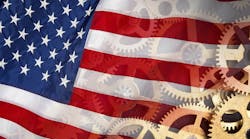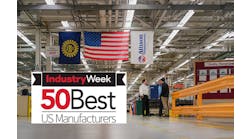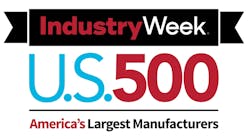What Can Government Do to Strengthen US Manufacturing?
As the November election looms, political candidates are offering a range of ideas to make United States domestic manufacturing more competitive. Joe Biden and Donald Trump are calling for re-shoring, promising to change the tax code and/or enhance Buy American rules. Congress is moving legislation with bipartisan support that some might consider an explicit industrial policy for the nation. Manufacturers that have seen their market share eroded by competitor nations since the turn of the century are actively pushing for a more aggressive U.S. government response.
To explore these and other policy proposals that would impact manufacturing for years to come, the Manufacturing Policy Initiative (MPI) at Indiana University and the Hudson Institute have organized a series of virtual policy discussions during Manufacturing Week, September 28 – October 2, 2020. The series will conclude on Manufacturing Day, Friday, October 2, with a live event at noon (EDT) featuring spokespeople for presidential candidates Donald Trump (Republican Party), Joe Biden (Democratic Party), and Jo Jorgensen (Libertarian Party).
The first of these virtual events, “Restoring the Industrial Commons,” addresses the outsourcing issue. The United States has lost significant manufacturing capabilities since the turn of the century. How can policymakers reverse the trend? Sridhar Kota (University of Michigan) and Tom Mahoney (MForesight) have written a paper describing the problem and proposing a solution—the nation should create a National Institute of Manufacturing with a significant R&D budget. Panelists include Kota, Zoul Ballman (Tsuchiya Group N America and TASUS Group), Sue Smith (Ivy Tech), and Bill Osborne (Boeing). Tom Duesterberg, (Hudson Institute) will moderate. This panel discussion will air on Tuesday, September 29.
The second panel discussion, “Spurring Innovation,” addresses the problem of sluggish productivity growth, a trend since the mid-1990s. Which policies would best spur productivity and enhance US competitiveness? In a paper prepared just for this event, Stephen Ezell (ITIF) offers dozens of policy proposals, many borrowed from particular states and other nations. Panelists include Ezell, Taffy Kingscott (IBM), Ralph Gomory (Alfred P. Sloan Foundation), and John Nueffer (Semiconductor Industries Association). Gil Kaplan, MPI Senior Fellow, will serve as moderator. This discussion will air on Wednesday, September 30.
Enhancing the resilience of US supply chains is the focus of the third and final panel discussion. The COVID-19 pandemic has revealed the fragility of global value chains. What role can the US government play to minimize future supply chain disruptions? Is re-shoring the answer? To facilitate this discussion, I, along with Tom Duesterberg (Hudson Institute) and Michael Mandel (MPI Fellow and Progressive Policy Institute) authored a paper that argues for 15 specific policies. Stephen Gold, CEO of the Manufacturing Alliance for Productivity and Innovation (MAPI), will moderate a panel of experts, including myself, Rosemary Gibson (Hastings Center), Gary Johnson (Ford), and Robert Scott (Economic Policy Institute). This discussion will air on Thursday, October 1.
The series concludes on Manufacturing Day, Friday, October 2 ,with a live event featuring spokespersons who will discuss the policy prescriptions of the presidential candidates. Manufacturing has and remains an important topic for each candidate, in part because manufacturing is important to our national security, as well as to the economy of many of the so-called battleground states. Their policy prescriptions, however, often differ. At this event, U.S. Sen. Mike Braun (R-IN) will speak to President Trump’s policy solutions. Spokespersons for Joe Biden and Jo Jorgenson have not yet been announced. Tom Guevara, Director of the Indiana University Public Policy Institute, will moderate.
Each event, which is free, airs from noon to 1 p.m. EDT on the day previously listed. Friday’s event will go until 1:15 and offer viewers the chance to submit questions. To access an event, go to the website of the Hudson institute. The event featuring the presidential candidate spokespersons will require registration for those wishing to see it live. To register, use this link. A recording of each event will remain publicly available on the MPI website and on the Hudson Institute website. The academic papers for each panel discussion can be accessed from the MPI website.
Never has there been a more critical time for manufacturing executives to understand the U.S. policy landscape. These events will help to provide such an understanding.
Keith B. Belton is principal with Pareto Policy Solutions, LLC, a consulting firm advancing U.S. competitiveness.




